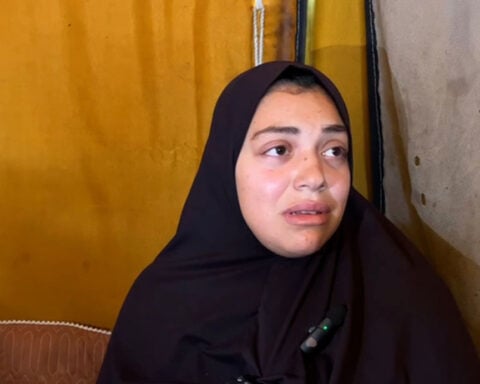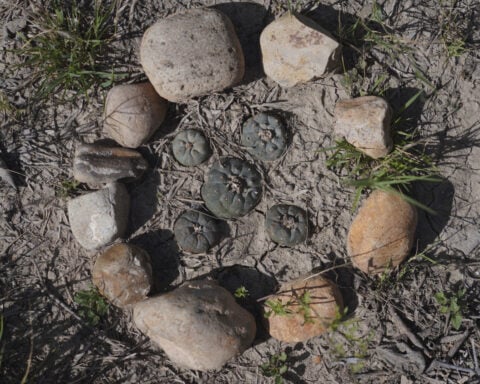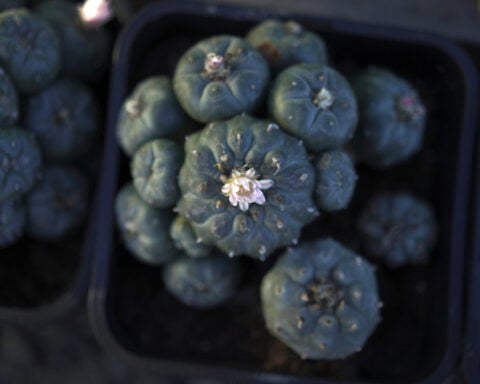Former "Baywatch" actress Nicole Eggert unveiled a dramatic new look this week, shaving her head amid her battle with breast cancer. In an Instagram video posted set to the Beastie Boys' "Fight For Your Right," a smiling Eggert shaves off her blonde locks with an electric razor.
"Maybe healing involves not so much changing ourselves but allowing ourselves to be who we are," she captioned the clip, crediting psychotherapist Madeleine Eames with the quote.
The video marks a defiant statement from Eggert two months after going public with her Nicole Eggert breast cancer diagnosis. It also preempts potential hair loss from upcoming treatment for the 52-year-old actress.
In January, Eggert revealed to People Magazine and her "Perfectly Twisted" podcast listeners that she has been diagnosed with stage 2 cribriform breast carcinoma. The rare cancer features distinctive holes between malignant cells, according to the National Cancer Institute.
Eggert said she first noticed symptoms last Fall, including significant weight gain and "a lot of pain." Following her Nicole Eggert breast cancer diagnosis, she initially hesitated to share the news widely but ultimately leaned on support from close friends.
"Having celebrity breast cancer is scary and certainly life-altering," Eggert told podcast listeners. Yet she resolved to fight while bringing hope to others combating breast cancer.
"It's something we have to deal with," said Eggert. "There's no reason to fight it alone, and there's no reason to be ashamed of it."
Eggert's resolve to speak openly helps further public understanding of breast cancer awareness. As the most common cancer in American women outside skin cancers, over 242,000 women in the U.S. hear the devastating breast cancer diagnosis each year.
The vast majority of cases arise in women over age 50, though 1 in 5 diagnoses strike younger women, says breast surgeon Dr. Heather Yeo of Weill Cornell Medicine and NewYork-Presbyterian. "We're seeing more patients in their 20s, 30s and 40s," she warns, urging awareness and screenings across ages.
While Eggert falls into higher risk brackets as a woman over 50, other factors contributing to breast cancer likelihood include family history, genetic markers, alcohol consumption, smoking, obesity, radiation exposure, hormone treatment duration, and reproductive history.
Black women face higher mortality independent of healthcare access, with causes including more aggressive tumor types. Experts underscore improving equity and representation in research as key to closing outcome gaps.
Besides defiantly declaring her fighting spirit, Eggert's dramatic haircut likely serves practical purposes, preempting impending treatment side effects. Chemotherapy infamously attacks all rapidly dividing cells — including hair follicles.
"Most patients experience significant hair loss, which can be extremely emotionally difficult," describes Dr. Yeo. As a result, many opt to shave their heads proactively. Doing so helps retain a sense of control and ownership through visible transformation on one's own terms.
The iconic visual also undeniably signals solidarity among a sisterhood united by somber shared experiences. "The bald head becomes a visible badge of courage reminding others still battling they don't fight alone," explains patient advocate Selma Blair, who shaved her own head facing chemotherapy for multiple sclerosis.
Eggert herself acknowledges the visual symbolism. "If one person can say, 'Well, look at her. She looks great. I'm going to keep my head up high as well,' then that's reason enough for me" to go public, she shares.
Motivating others to take preventative action is another reason Eggert shares her struggle. "The earlier you catch it, the better your chances are," Yeo emphasizes. "We have screening protocols for finding breast cancer early when it's small, localized, and much more treatable."
Yeo recommends that women without high genetic risk begin their annual mammograms at 40. Those with a family history or genetic markers should start scans at least ten years earlier than their closest affected relative's diagnosis age. Clinical appointments every one to three years, beginning in their 20s, establish baselines, helping assess changes down the line.
Beyond vigilant testing, maintaining a healthy lifestyle offers protection. "Reducing alcohol intake, managing weight, and exercising regularly helps lower risk," advises Yeo.
Despite facing a long journey ahead, including surgery, chemotherapy, and radiation, Eggert tackles it with defiant hope. She aims to preserve quality time with her two young daughters while battling bravely.
The actress and 80s icon draws inspiration from the outstanding survivor story of her Baywatch co-star Erika Eleniak, now 32 years cancer-free. Advances improving outlooks for this dreaded foe further lift Eggert's spirits.
"We've made extraordinary breakthroughs over my career," notes Yeo, citing progress on targeted immunotherapies harnessing the body's own defenses against malignancies. "New treatments better destroy cancer cells while avoiding healthy tissue damage, dramatically reducing side effects."
Statistics reinforce better prognosis: the overall 5-year breast cancer survival rate now reaches 90%, nearly double that of the 1960s. Eggert voices confidence she will emerge among other victors celebrating long lives beyond the disease.
By boldly baring her shorn head, the actress spotlights the source of her formidable strength. Eggert makes clear that with solidarity and medical progress on their side, those confronted by breast cancer's challenges can confront it — come what may — with open eyes, gritted teeth, and dignified grace.

 US sex-abuse watchdog fires investigator after learning of his arrest for stealing drug money
US sex-abuse watchdog fires investigator after learning of his arrest for stealing drug money
 Colorado nonprofit provides safety gear to homeless after tragic death previous Christmas
Colorado nonprofit provides safety gear to homeless after tragic death previous Christmas
 Five facts about electric vehicles in 2024
Five facts about electric vehicles in 2024
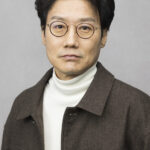 Hwang Dong-hyuk on killing off his 'Squid Game' characters and wanting to work with Jake Gyllenhaal
Hwang Dong-hyuk on killing off his 'Squid Game' characters and wanting to work with Jake Gyllenhaal
 Erling Haaland misses penalty and Man City drops more points after 1-1 draw with Everton
Erling Haaland misses penalty and Man City drops more points after 1-1 draw with Everton
 Transform the daily grind to make life more interesting – a philosopher shares 3 strategies to help you attain the good life
Transform the daily grind to make life more interesting – a philosopher shares 3 strategies to help you attain the good life
 What if you could rank food by ‘healthiness’ as you shopped? Nutrient profiling systems use algorithms to simplify picking healthy groceries
What if you could rank food by ‘healthiness’ as you shopped? Nutrient profiling systems use algorithms to simplify picking healthy groceries
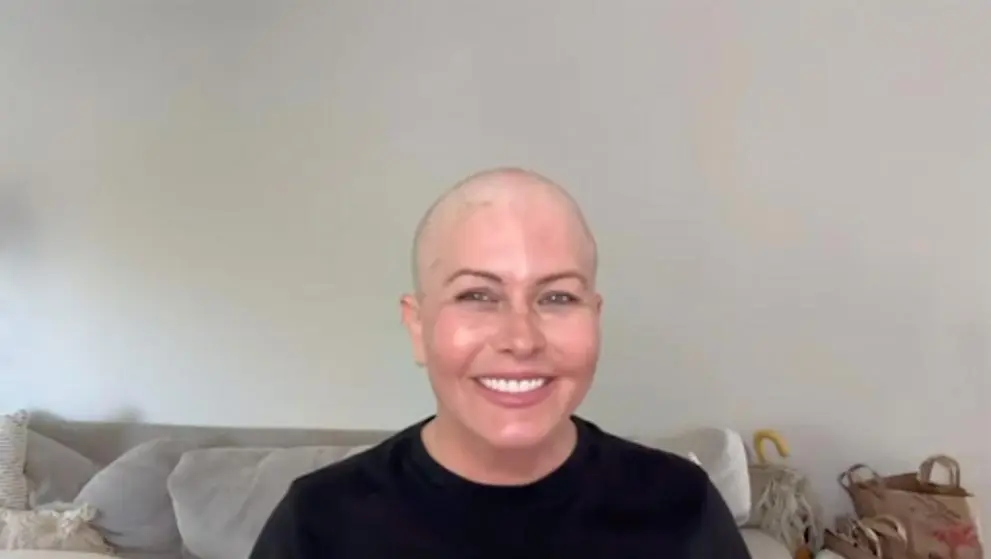 Nicole Eggert Raises Breast Cancer Awareness
Nicole Eggert Raises Breast Cancer Awareness


